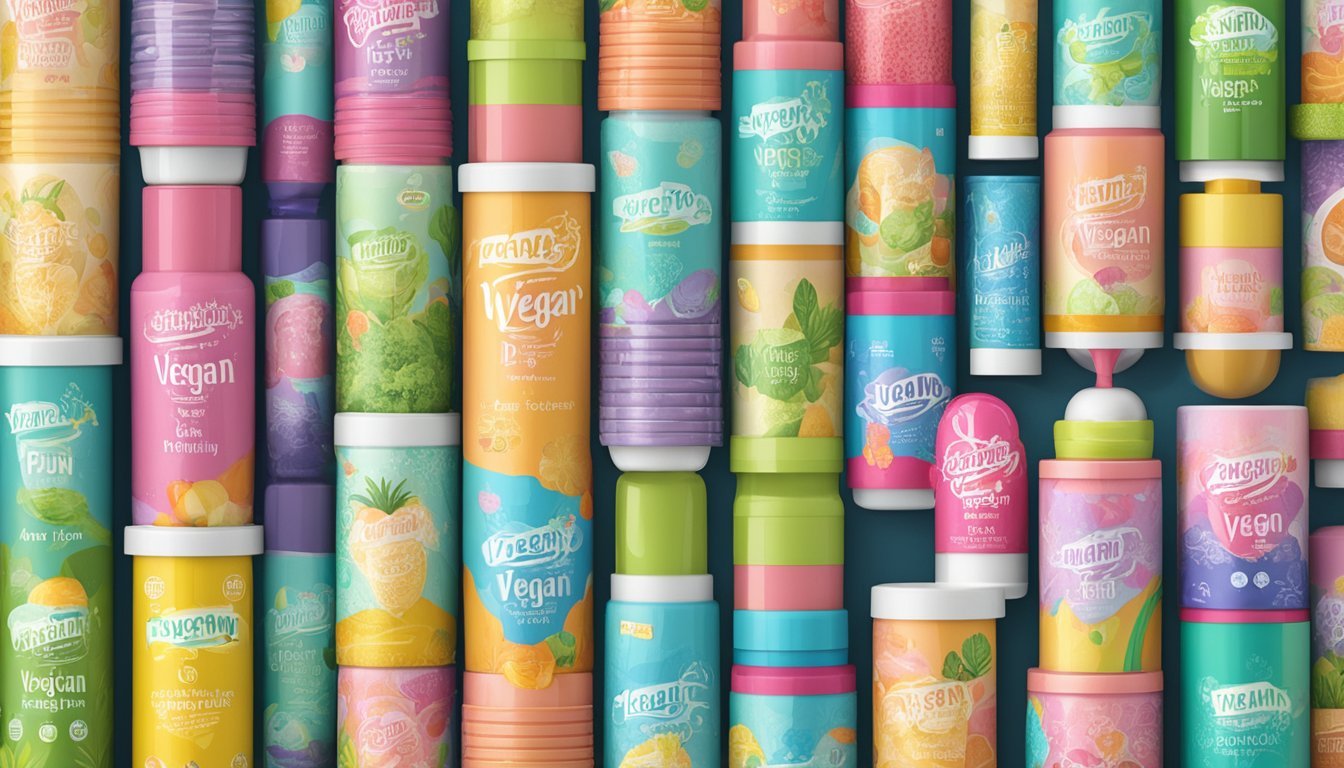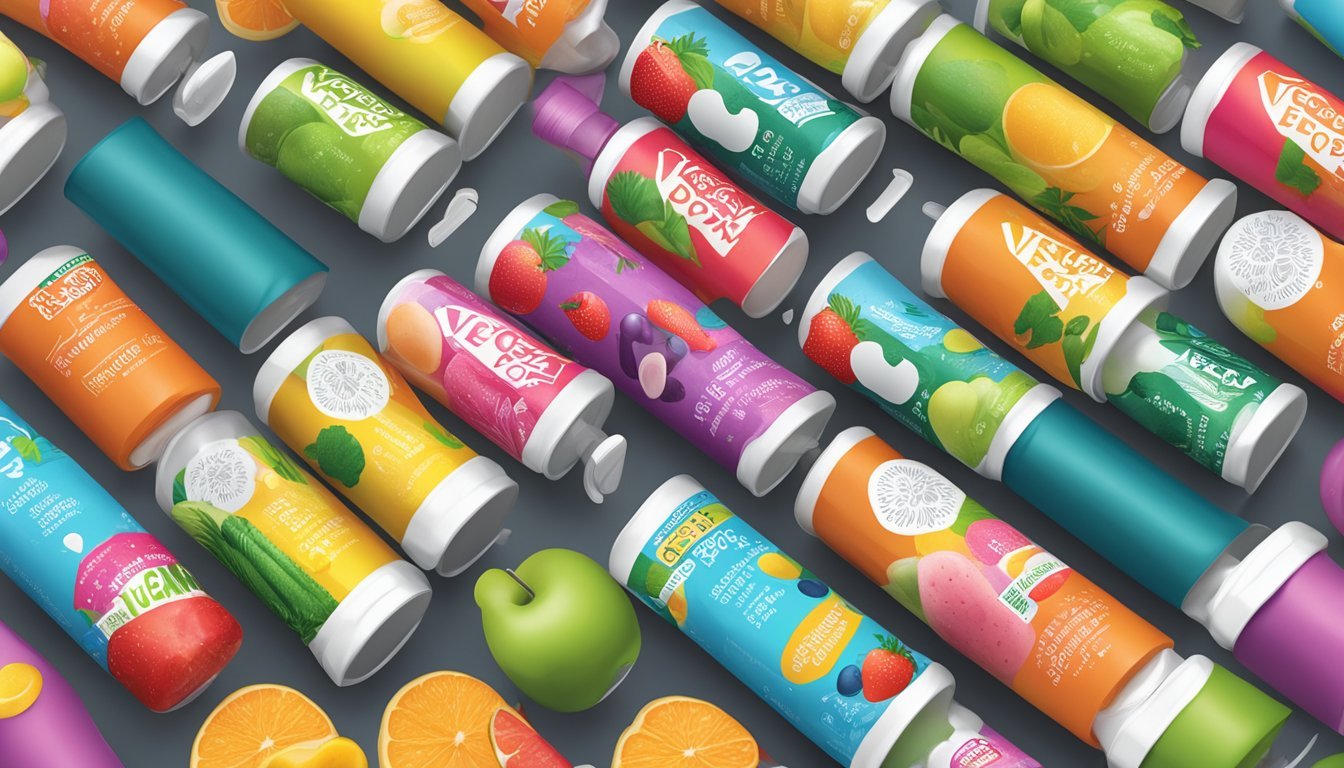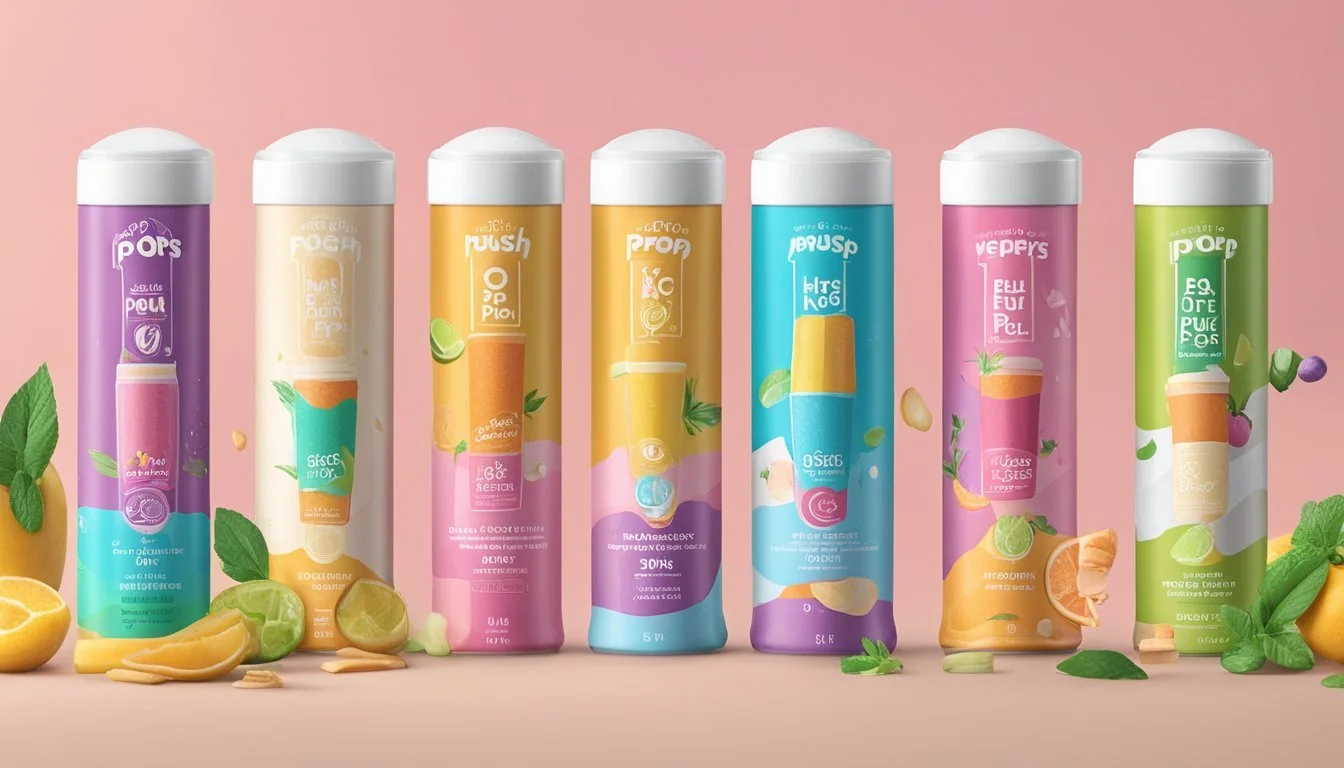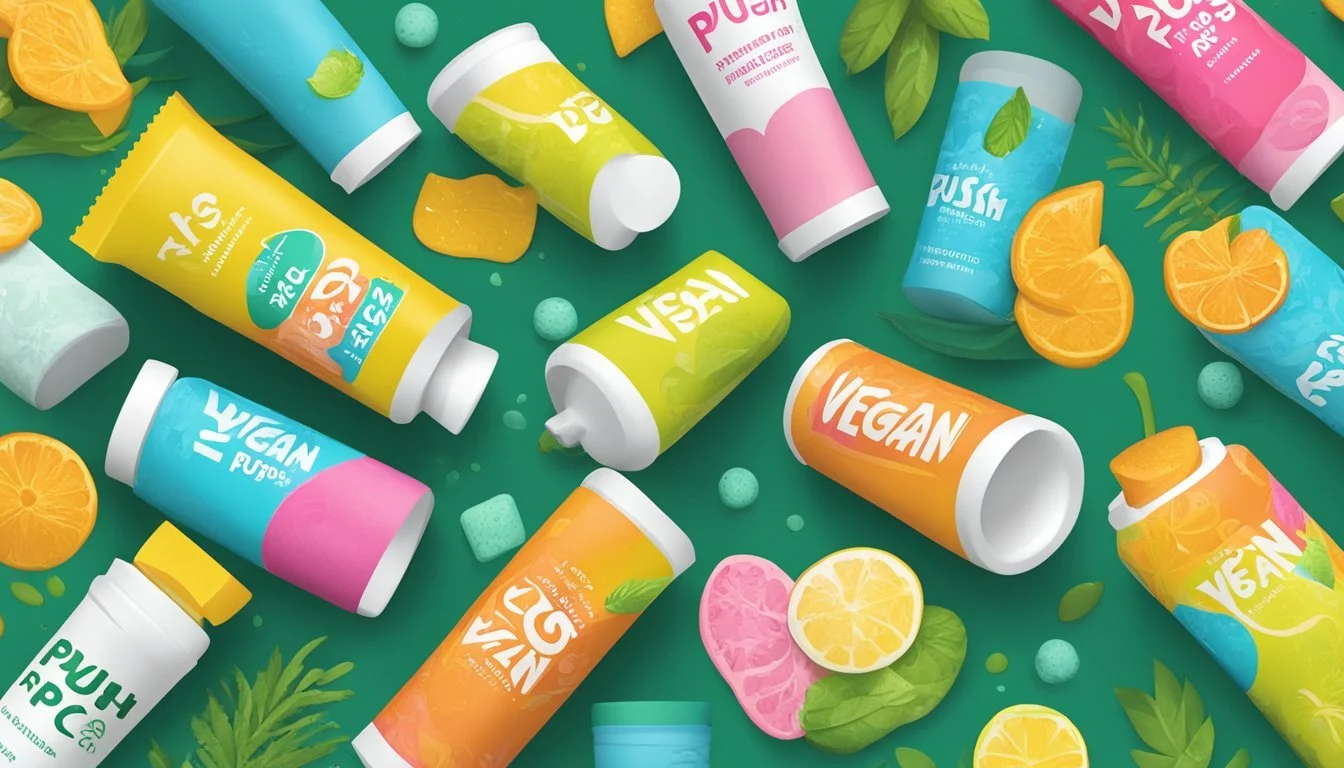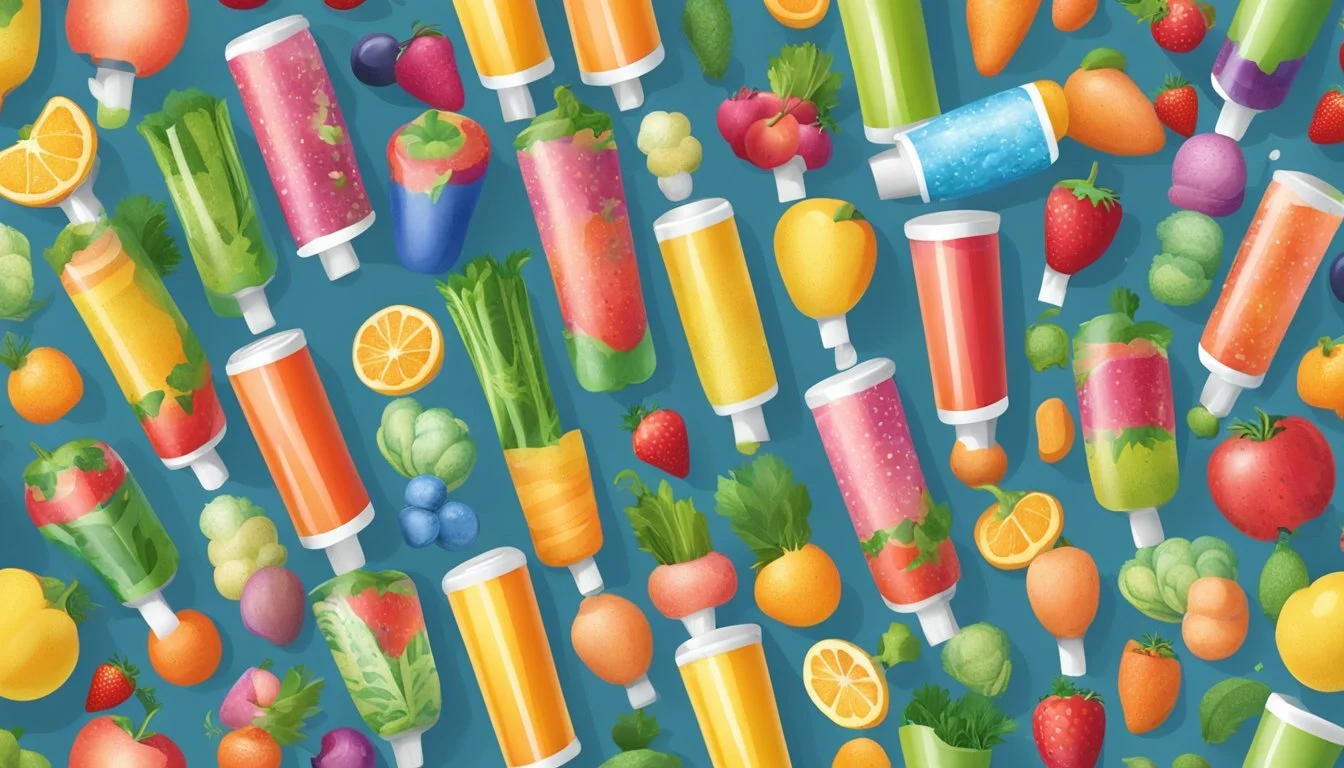Are Push Pops Vegan?
Unveiling the Ingredients and Options
Determining the vegan status of popular treats like Push Pops is becoming increasingly important as more consumers adopt a plant-based lifestyle. Push Pops, those nostalgic, brightly-colored lollipops with a push-up mechanism, are not exempt from this scrutiny. Traditionally, the main ingredients in most Push Pops are plant-based, which suggests that they should be suitable for a vegan diet.
However, vegans should be aware that some Push Pops may contain ingredients of concern, such as lactic acid, which can be sourced from animal products, or artificial colors, which carry their own ethical and dietary considerations. It is also important to note that certain manufacturers might include an animal-derived binder like gelatin or casein, which would render the product non-vegan. Therefore, while many Push Pops variants are vegan-friendly, those adhering to strict vegan principles should examine ingredient lists carefully or seek specific brand confirmations.
Each variant and flavor of Push Pop may have a different composition, so the vegan status may vary. For example, certain types such as Jumbo Candy, Jumbo Lollipop, Hard Candy, and SliderZ are generally free from explicitly non-vegan ingredients. Consumers interested in choosing vegan products must take a closer look at the specific Push Pop flavor in question to make an informed choice, as manufacturers' recipes can change over time.
What Are Push Pops?
Push Pops are a type of candy that offers a convenient and playful way to enjoy sweet flavors. Available in a variety of fruit-inspired tastes, they have become a recognizable treat for people seeking a quick sugar fix.
Definition and Origin
Push Pops are a novelty candy consisting of a flavored hard candy lollipop that is encased in a plastic tube. Introduced by Topps in the late 1980s, they feature a mechanism that allows the consumer to 'push' the candy up to eat and then retracted to save for later. This design not only makes them portable but also allows for portion control and a mess-free experience.
Popular Flavors
The popularity of Push Pops can be greatly attributed to their array of flavors. Some of the well-loved varieties include:
Watermelon: Often characterized by its juicy and refreshing taste.
Strawberry: Known for its sweet yet slightly tart profile.
Blue Raspberry: A vibrant flavor that balances sweetness and tanginess, often with a bright blue color.
Raspberry: Typically, this flavor aims to mimic the tartness and the fruitiness of real raspberries.
These flavors are among the traditional offerings that have garnered a loyal fan base over the years.
Ingredients Analysis
Evaluating whether Push Pops are vegan involves scrutinizing their ingredients. The analysis considers common components and the implications of controversial substances that may affect their vegan status.
Common Ingredients in Push Pops
Sugar: This main ingredient is derived from plants like sugarcane or beets. However, some sugar may be processed with bone char, raising concerns for vegans.
Glucose Syrup: Typically sourced from corn, glucose syrup acts as a sweetener and is generally considered vegan.
Controversial Ingredients
Artificial Flavors and Colors: While these are usually synthetically produced, some vegans avoid them due to potential animal testing.
Lactic Acid: Often found in foods as a preservative, its source can be either animal-based or vegan. Buffered Lactic Acid may also raise similar concerns.
Gelatin: A known animal-derived ingredient, if present, it would classify the product as non-vegan. However, no evidence suggests that gelatin is found in Push Pops.
Vegan Considerations
When examining whether Push Pops are vegan, one must take into account the ingredients used and the certifications that may affirm their suitability for a vegan diet.
Animal-Derived Ingredients
Vegan consumers should check for the presence of animal-derived ingredients. Common non-vegan components to look out for include gelatin, which is derived from animal collagen, and certain dairy products. Gelatin is often used in confections to provide a chewy texture but is not vegan as it comes from animals. Vegan variants of sorbet Push Pops, such as those introduced by by CHLOE., avoid these ingredients, instead using plant-based alternatives.
Dairy-free options are important for vegan products as dairy is sourced from animals. Vegan desserts should substitute dairy with plant-based milks or creams. Vegan Cake Pops by Nora Cooks, for instance, use soy milk instead of cow's milk. Additionally, ingredients like sugars processed with bone char are not suitable for vegans. Confirming halal certification can sometimes be helpful, as many halal products avoid ingredients like gelatin, but halal does not necessarily mean vegan.
Vegan Labeling and Certification
Vegan labeling and certification assure consumers that products meet vegan standards. This implies they contain no animal products and have not been subject to animal testing. Certifications from recognized vegan organizations add an extra layer of trust. A product labeled as vegetarian may not be vegan if it includes ingredients like dairy or eggs. Plant-based labeling often indicates a product is vegan-friendly, but consumers should still verify the ingredients.
Vegan certifications to look for:
Vegan Action (Vegan.org)
The Vegan Society (Vegetarian Society)
A product with these labels adheres to strict vegan standards, ensuring they align with a vegan lifestyle, avoiding all forms of animal exploitation or harm.
Health and Nutrition
When considering the health and nutrition of Push Pops, two key factors stand out: sugar composition and potential allergen presence. These are central concerns for consumers prioritizing health.
Sugar Content and Health Concerns
Push Pops are classified as candy, and thus sugar is a primary ingredient in their composition. The glucose syrup, which often derives from corn, contributes significantly to the candy's sweetness. A typical Push Pop may be high in sugars, contributing to caloric intake without providing any essential nutrients. Overconsumption of candies like Push Pops can lead to health issues such as dental cavities, weight gain, and increased blood sugar levels.
Allergen Information
For individuals with specific dietary restrictions, knowing whether Push Pops are free from common allergens is crucial. These candies are touted as gluten-free and soy-free, making them safer options for those with gluten and soy allergies. The absence of nuts in their composition also benefits those with nut allergies. However, consumers with other food sensitivities or allergies should carefully review ingredient lists, as formulations can vary between different Push Pop products and over time.
Alternatives to Push Pops
Consumers seeking alternatives to Push Pops have various options that cater to vegan diets and preferences. These include commercially available vegan-friendly candies and recipes for creating one's own push pops that are both vegan and customizable to personal taste.
Vegan-Friendly Candy Options
When searching for vegan-friendly candy alternatives, consumers should look for those that do not contain animal-derived ingredients such as gelatin, casein, or certain forms of lactic acid. Here is a list of attributes that are often found in vegan confectionery:
Plant-based ingredients: Candies made exclusively from plants.
No artificial colors or flavors: These are often tested on animals or can have animal-derived origins.
Organic and non-GMO: Many consumers prefer organic candies to ensure they are consuming products free from synthetic fertilizers and genetically modified organisms.
Gluten-free: Although not an issue related to veganism, many vegan candies also cater to those with gluten intolerances.
Example Vegan-Friendly Candies:
Surf Sweets Organic Fruity Bears
SmartSweets Sweet Fish
Homemade Vegan Push Pop Recipes
For those who prefer a more hands-on approach or wish to ensure their treats are made with fresh and organic ingredients, crafting homemade vegan push pops can be both a fun activity and a healthier alternative.
Basic Vegan Push Pop Ingredients:
Fruit: Pureed or juice form, provides natural sweetness and flavor.
Sweetener: Options like agave syrup or maple syrup can be used instead of refined sugar.
Binder: To achieve the desired consistency without animal gelatin, one could use agar-agar or pectin.
Vegan Push Pop Instructions:
Blend your choice of fruit and sweetener until smooth.
Stir in the binder and cook if necessary, according to the binder's instructions.
Pour the mixture into push pop molds and freeze until set.
These homemade push pops can be a hit during summer gatherings and offer a delightful way to cool down. Storing them in the freezer ensures a refreshing treat that's always on hand.
Sustainability and Environmental Impact
Push Pops, as a product, have an intricate relationship with sustainability and environmental impact through their packaging and the sources of their ingredients.
Packaging and Waste Reduction
Push Pops usually come in a plastic tube, which has a significant environmental impact. Plastic tubes are not typically considered sustainable because they can contribute to landfill waste and are often not recycled effectively. Companies are increasingly pressured to find ways to reduce packaging waste or to use recycled or biodegradable materials to mitigate environmental damage.
Material: Plastic (often not recycled)
Concerns: Landfill waste, environmental pollution
Alternatives: Biodegradable or recycled materials
Sourcing of Ingredients
The ingredients in Push Pops, if plant-based and organic, can potentially have a less harmful impact on the environment compared to conventional agriculture. Plant-based ingredients usually require less water and land to produce and can lead to lower levels of water pollution. However, the production methods and transportation of these ingredients also play a significant role in their overall sustainability.
Ingredients: Need for organic and plant-based
Benefits: Reduced water usage and pollution
Production: Methods and transport implications
Branding and Market Presence
In the candy industry, branding and market presence are critical for distinguishing a product. When assessing whether Push Pops are vegan, the branding approach of Topps Company and the market alternatives offered by competitors play a role in consumer perception and choice.
Topps Company Profile
The Topps Company is renowned for its innovative and fun confectionery products which include Push Pops, Ring Pops, and Gummy Rolls. Push Pops specifically have been marketed as a playful candy that’s conveniently packaged to 'push' the treat out and 'pop' it back in, aligning with trends of portability and ease of use. Topps positions itself as a market leader in the novelty candy segment, where its branding strategies emphasize flavor variety and kid-friendly packaging.
Competitors and Market Alternates
The market for vegan-friendly candies presents various competitors that offer alternatives to Push Pops. Alternative products range from popsicles to freezer pops, each vying for consumer attention through distinct branding techniques:
Popsicles: Typically marketed as a frozen treat, many brands highlight their use of natural fruit juices and absence of animal derivatives, catering to the vegan market.
Freezer Pops: These are often branded as a convenient and refreshing snack, with some brands promoting their products as vegan-friendly by eliminating animal-based ingredients.
Companies competing in this space leverage their brand to signal to consumers whether their offerings align with vegan principles, often utilizing logos and certifications to distinguish themselves.
Consumer Insights
Examining consumer insights reveals patterns in the popularity of Push Pops and the perceptions customers hold toward their vegan status.
Popularity Trends
Push Pops have remained a popular choice of candy, especially in summer months, where their convenient packaging and fruit flavors align with consumer desires for refreshing, on-the-go treats. The emergence of veganism has reframed the way consumers evaluate candy options, with a growing segment specifically looking for plant-based alternatives. Data suggests that the demand for vegan candies is on the rise, and Push Pops are often part of the conversation due to their plant-based ingredients.
Customer Reviews
Customers often describe Push Pops as a nostalgic feature of childhood that has transitioned into their vegan lifestyle. Reviews highlight that while most flavors of Push Pops are appreciated for their fruity and refreshing taste, the vegan status of certain varieties raises questions due to the presence of ingredients like lactic acid, which can be derived from animal sources.
Vegan-Friendly Status:
Yes: Customers report that many Push Pops are free from animal-derived ingredients.
Maybe: Some flavors contain lactic acid, and customers advise checking for the source of this ingredient.
Flavor Reviews:
Customers often note that the fruit flavors of Push Pops are particularly popular during warmer seasons and are a hit due to their refreshing qualities.
Customers who are strict ethical vegans also consider artificial colors, examining if these additives align with their values. As such, the reviews suggest that the brand's transparency concerning ingredient sourcing is critical to maintaining trust with this consumer base.
Conclusion
Push Pops are generally considered vegan-friendly. These confections typically do not contain any animal-derived ingredients. Ingredients commonly found in Push Pops include fruit, vegetable oils like palm oil, and various plant-based sweeteners.
For stricter vegans, some concerns may arise. Certain flavors contain lactic acid, which can be animal-derived, although it is often sourced from plant or microbial fermentation. Artificial colors, another component found in Push Pops, might not align with the preferences of ethical vegans due to the potential for animal testing involved in their production.
It is necessary to consider individual ingredients such as:
Lactic Acid: Can be derived from animal sources or be plant-based.
Glycerin and Mono- and Diglycerides: These can be sourced from animals, making varieties like the Gummy Rolls variant of Push Pops potentially non-vegan.
To ensure a Push Pop conforms to vegan standards, consumers should review ingredient lists or reach out to the manufacturer for clarification on the sourcing of debatable ingredients like lactic acid, glycerin, and mono-and diglycerides.

